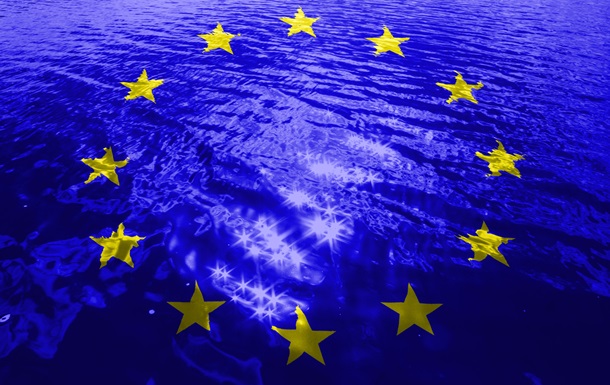The EU’s New Black Sea Strategy: A Geopolitical Course Toward Resilience, Security, and Integration

On
May 28, 2025, the European Union unveiled an updated Black Sea Strategy, aimed at enhancing security, fostering
resilient infrastructure connections, and implementing environmental standards
in one of the most complex and geopolitically sensitive regions in the world.
The strategy covers Ukraine, Moldova,
Georgia, Turkey, Armenia, and Azerbaijan, underscoring the EU’s ambition
to build a stable and prosperous “eastern corridor.”
1. Maritime Security: The Black Sea
as a Strategic Front
One
of the core pillars of the strategy is the strengthening of maritime security. The EU plans to establish a Regional Maritime Surveillance and Resilience
Center, tasked with navigation monitoring, combating smuggling,
responding to cyber threats, and addressing environmental disasters.
Following
Russia’s invasion of Ukraine in 2022, the Black Sea became not only a military
theater but also a critical transit zone for grain, energy, and military
logistics. The rising number of incidents involving naval mines, drones, and
attacks on commercial vessels has highlighted the need for enhanced
coordination among littoral states.
The
EU is focusing on improving interoperability between the naval forces of
Ukraine, Georgia, and NATO countries, including expanded cooperation with
Turkey.
2. Infrastructure Connectivity: The
Middle Corridor and Caucasus Trade Flow
The
second focus of the strategy is transport
and energy connectivity. The EU intends to support the development of
trans-Black Sea transport routes, including:
-
The Middle Corridor
(Trans-Caspian International Transport Route), linking Europe and China via the
Black Sea, South Caucasus, and the Caspian Sea;
-
Infrastructure projects in Georgia and Azerbaijan, such as railway hubs, dry
ports, and upgrades to bridges and tunnels;
-
Support for digital infrastructure,
including undersea cables, satellite communications, and 5G in border regions.
The
EU views the Black Sea region as a gateway
to Central Asia, offering an alternative to Russian and Iranian transit
corridors.
3. Environmental Focus: From
Sustainable Fisheries to Decarbonization
The
third pillar of the strategy centers on environmental
sustainability, including:
-
The creation of a unified platform for monitoring Black Sea pollution;
-
Support for decarbonizing port
infrastructure;
-
Programs on sustainable fishing and
biodiversity, involving research institutions from Georgia, Bulgaria,
and Ukraine.
For
the first time, the EU has introduced environmental criteria as a condition for
infrastructure funding — “green
corridors” and electrified
railways will receive priority.
This
new strategy is not only an economic blueprint but also a political manifesto. Amid growing
tensions in the Black Sea and South Caucasus regions, the EU:
-
Seeks to balance relations between Turkey and Armenia;
-
Supports Ukraine and Moldova on their path to EU integration;
-
Increases its presence in Georgia, where political instability persists;
-
Offers an alternative to China’s investment model through its Global Gateway initiative.
The
EU’s goal is to create a belt of
resilient partners, building a “ring of stability” stretching from the
Balkans to the Caspian Sea.
Despite
its ambitions, the strategy may face several obstacles:
- Instability in the South Caucasus, including internal protests and
external threats;
- Resistance from Turkey, which views the Black Sea as part
of its sphere of influence;
- Limited EU resources, especially with ongoing commitments in Ukraine and
Moldova.
The EU’s Black Sea Strategy is an attempt to establish a new architecture of security and development in the region, prioritizing cooperation, sustainability, and integration without coercion. If implemented consistently, it could transform the region from a conflict zone into a space of opportunity.
Expert Group CCBS
 Latest news
Latest news Latest news
Latest newsGreece Plans to Exclude Turkiye from Future Defense Contracts
20.Feb.2026
U.S.-Based Mars Launches Major Investment Project in Kazakhstan
20.Feb.2026
Parliamentary Elections 2026 in Armenia as a Geopolitical Referendum
20.Feb.2026
Russia and Ukraine Fail to Reach Agreement in Geneva
19.Feb.2026
The South Caucasus in U.S. Foreign Policy: Implications of High-Level Visits for Russian and Chinese Regional Aspirations
18.Feb.2026
Ukraine Imposes Personal Sanctions on Belarusian President Alexander Lukashenko
18.Feb.2026
72% Against the Authorities: Economic Dissatisfaction Hits Record Levels in Turkiye
17.Feb.2026
Bulgaria Strengthens Defense: First American Stryker Vehicles Delivered
17.Feb.2026
Moscow Criticizes Plans to Build a U.S.-Backed Nuclear Power Plant in Armenia
16.Feb.2026
Washington expects Tbilisi to strengthen ties amid regional changes
15.Feb.2026

 28 Feb 2026
28 Feb 2026









